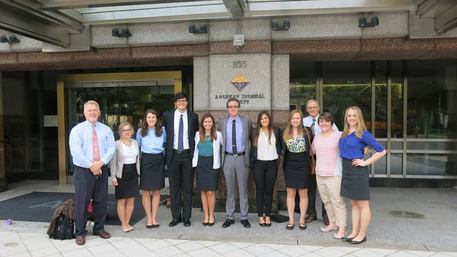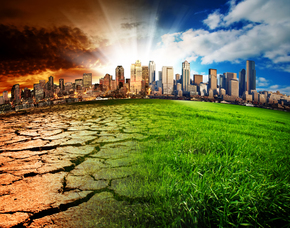 Washington, D.C.: the capital of the country. When you’re not going there to be a tourist, it can be quite the stressful place. First of all: the roads. Cars weaving in and out of lanes like the pavement is their personal playground and pedestrians walking across the road like they’re invincible; it’s enough for anyone’s anxiety to shoot through the roof. And if you were already nervous…? Well, at that point, the only thing you feel like doing is curling up for a nice, long nap. That’s what it was like for me a couple of weeks ago when I headed into Washington, D.C. with two professors from my college and a co-student delegate. We were headed towards the headquarters of the American Chemical Society (ACS) to meet with the seven other student delegates who would be attending the United Nations Framework Convention on Climate Change (UNFCCC) 20th Conference of the Parties (COP20) in Lima, Peru come December 2014. Once we’re there, we will have the opportunity to be eyes and ears for our generation, getting first-hand experiences in seeing how world leaders talk about climate change. But there, in D.C? That is where our journey began. Those of us in the program would finally get to meet each other and learn. We would get to talk to real representatives who worked in Washington every day and get to know more what it was like on the official side of the proverbial curtain. We would learn how to effectively get our message across in order to see this program flourish. The first night, we were greeted with a “welcome dinner” at the ACS headquarters itself. We got name tags, sat around tables and began to eat as we listened to a presentation that would go over the next day’s agenda. We were given folders with information, and, with a warm smile, were told that we’d have homework to do for the next day. It seemed that even outside of our campuses, school life never failed to follow us. Returning to the hotel that night, we split into our respective groups in order to go to two different locations the next day, and got to work. We had a couple of articles to read and had to do research on who we’d be meeting with the next day in order to construct cohesive and comprehensive questions. We did what we had to do, but as undergraduates will, we began to steer off course, and talk about the topic that we were all coming together on: climate change. Despite the fact that we were exhausted from a long day of travel with only a longer day ahead of us -- none of it mattered when we could come together and talk about climate change and what we might experience in Lima. We are all more than excited to go one of the most important climate conferences in order to learn, and be the bridge between the formal talks that happen at these conferences, and to the people of our generation. The students who will attend the conference with me are people who share my ideals: my passion. As midnight got closer, I’m sure we were the only people in the hotel lobby who were throwing our hands up on a Wednesday night, squirming in our chairs, excitedly chatting about all the things we wanted to do, all the things we had to learn. Something even more important than us coming together, though, is the fact that we are so very different. We come from completely different parts of the country (and one student is even from Canada). Our pasts are different, and we hardly agree on every other issue there is -- in fact, some of us have completely opposite opinions. Some of us are more conservative, and some of us are liberal; some of us wish to look into the science of climate change, while others want to pursue policy or the social sides of this issue. But that’s the thing about climate change: it brings us all together. There isn’t a single person on the face of this planet who won’t be affected by climate change in some way, whether they realize it or not. Some people more so than others (Florida has lost over 200 feet of coastline since 1980), while some might feel it in their pockets, or have longer, harsher, winters (the “Winter Vortex” of last winter might ring a bell). But we’ll all feel it. The differences between us don’t matter in regards to climate change; we are all on the same level. We all share this Earth, and so, it is all of our responsibilities to take care of it.
Humans might have made this mess, but I am more than confident in the fact that we can clean it up. The road ahead of us regarding climate change is long and hard, but to get anywhere, we need to take the first step. Like us in the project, your past doesn’t need to have a bearing on your opinion on climate change. Your other beliefs don’t need to affect how you act or live when it comes to living a healthier, more sustainable life. If you haven’t already, begin your journey here, with us. It’s only together that we, humanity, can make the difference.
1 Comment
15/11/2014 10:04:12 pm
Thanks Kaitlyn -- Your focus on the need for collective action is especially welcome. The new research assembled by Rodale Institute suggests that regenerative organic agriculture / agro-ecology can sequester enough carbon in the soil to offset all the GHG emissions that are driving global warming. If this is correct, it would be a welcome opportunity to work with those striving to improve the food system — we could work together to fix the climate and, at the same time, put an end to the pollution that causes so many environmental health problems! --Peter
Reply
Leave a Reply. |
Categories
All
Archives
March 2024
|

 RSS Feed
RSS Feed
